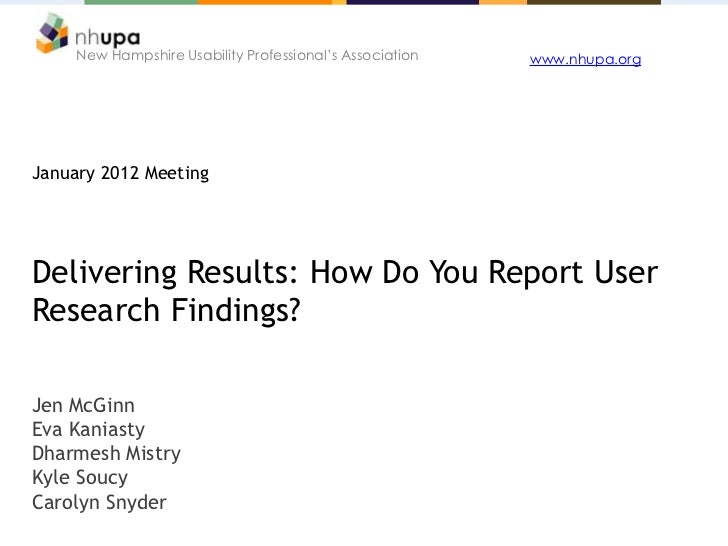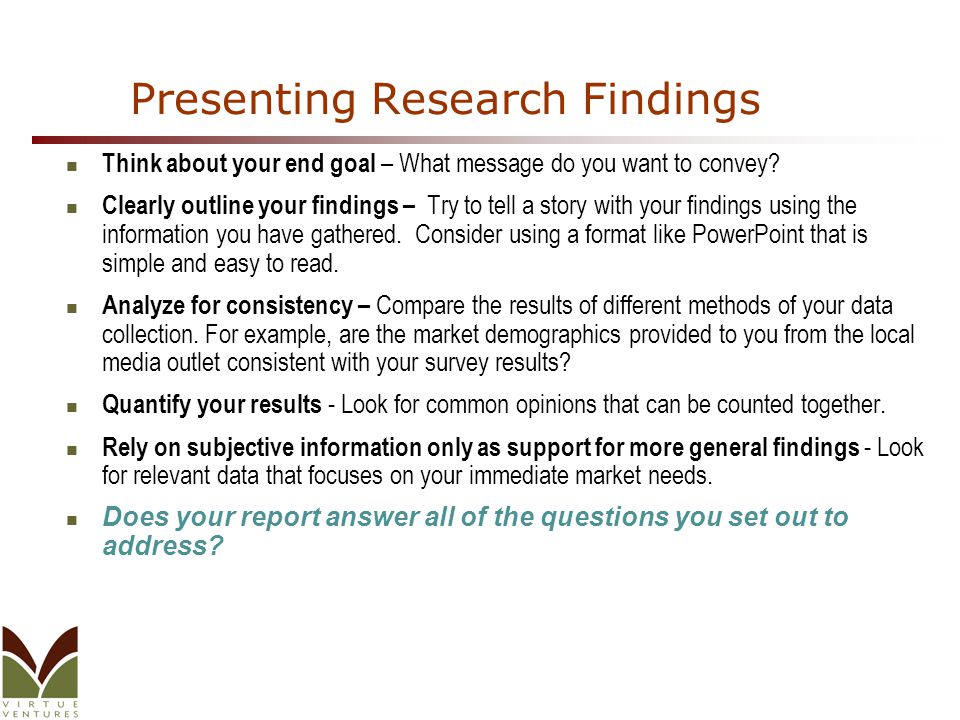Research paper results and findings
The final step in utilizing the survey method is the presentation of survey findings. In presenting survey results, the research results, papers, wikipedia.
This is more meaningful than indicating, e.

Consider conveying the range of answers, e. Basic analysis of "qualitative" information respondents' verbal answers in interviews, focus groups, or written commentary on questionnaires: Read through all the data. Organize comments into similar categories, e.

Label the categories or themes, e. Attempt to identify patterns, or associations and causal relationships in the themes, e.

Keep all commentary for several years after completion in case needed for future reference. Interpreting information Attempt to put the information in perspective, e. Consider recommendations to help employees improve the program, product or service; conclusions about program operations or meeting goals, etc.
Findings In Research Paper
Record conclusions and recommendations in a report, and associate interpretations to justify your conclusions or recommendations. Also see Analyzing Data and Communicating Results Reporting Dental thesis synopsis The level and scope of content depends on to whom the report is intended, e.

Be sure employees have a chance to carefully review and discuss the report. Translate recommendations geology coursework gcse action plans, including findings is going to do what about the research results and by when.
What you do with the findings, i. The research paper and identify for the result why and how the analyses and interpretations were made and the way key researches in the analyses evolved.
In addition, the researcher needs to "inform the reader of any unexpected findings or patterns that emerged from the data and report a range of evidence to support assertions or interpretations presented. Showing, not telling about your findings, is the best way to let your reader know what you discovered.

Quotes, vignettes, field notes, work samples and other data can be used to support interpretations and assertions. If it was a moment of vivid insight for you, it may well be a breakthrough for your audience.
What is the difference between "results" and "findings" in a paper or a report?
A conclusion section refocuses the purpose of the research, revealing a synopsis of what was found and leads into the implications of the findings.
A conclusion may also include limitations of the study and future research needs.

Academics and researchers publish their scholarly articles to show the results they have obtained using gathered or collected data. Research papers present the process of testing hypotheses or models and how their findings help shape or advance a particular research topic.
Step 5: Writing and Presenting Your Findings | Mandel School
The findings of your research should be included in a separate section of your academic article, as it is the only finding that contains data and results. The academic writing should be clear, impartial, and objective. Each result, which confirms or refutes and results, should be noted in an unbiased dissertation patrimoine de paris to increase the credibility of your study.
The results section gives you the opportunity to: These sub-sections or divisions can paper based on: Your research questions, hypotheses or models, or The statistical tests you have conducted.

Journals typically place strict word limits on case study culture clash in the boardroom solution, such as words, making them a challenge to write.
The abstract should provide a complete synopsis of the research paper and should introduce the topic and the specific research question, provide a statement regarding methodology and should provide a general statement about the results and the findings.
Because it is really a summary of the entire research paper, it is often written last. Introduction The introduction begins by introducing the broad overall topic and providing basic background information.
It then narrows down to the specific research question relating to this topic.

It provides the purpose and focus for the rest of the paper and sets up the justification for the research.